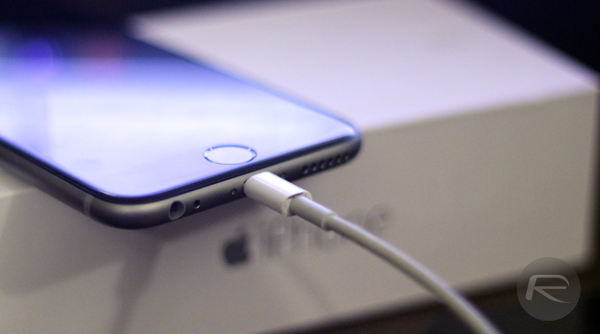There has rarely been so many different versions of iOS in use at once as there are today. Most current iPhones and iPads are running iOS 8.1.3 download, but with a fifth beta of iOS 8.2 in the wild and iOS 8.3 beta 2 arriving just a couple of days ago, lots of people are wondering which build offers the best battery life.
It’s true that both of the beta releases we just mentioned probably shouldn’t be given too much attention as far as battery life is concerned, mainly because you never know what will change before the final shipping version. Apple tends to have logging turned up on beta releases too, and that needs processing power. Still, it’s sometimes worth looking at what betas are capable of if only to provide a rough gauge.

That’s exactly what YouTuber Klaus Jacobsen did. Using an iPhone 5 that still had iOS 8.0.2 on, he used the new battery testing feature in Geekbench in order to see how long the battery took to drain from 100% to 0%. He then updated the handset to iOS 8.1.3 and repeated the test before moving on to iOS 8.2 beta 5 and iOS 8.3 beta 2. The same Geekbench test was run each time and no apps were installed before any of the testing was performed.
The results weren’t exactly surprising.
As it turned out, it took 2 hours 56 minutes for both iOS 8.0.2 and iOS 8.2 beta 5 to drain an entire battery, with iOS 8.1.3 lasting the longest at 3 hours. The second beta release of iOS 8.3 lasted 2 hours 54 minutes.
Check out the video below and see for yourself how different versions of iOS 8 compare to one another:
What all that boils down to is our conclusion that there isn’t a great deal of difference between any of the versions of iOS that were tested, at least on an iPhone 5. A couple of minutes here and there is well within the margin of error we would expect of such a test, and just goes to show that as far as battery life is concerned, the biggest changes come from the apps that are installed. Some apps just eat battery, and there isn’t much iOS can do about that.
That probably won’t stop iOS getting blamed, though.
You may also like to check out:
You can follow us on Twitter, add us to your circle on Google+ or like our Facebook page to keep yourself updated on all the latest from Microsoft, Google, Apple and the Web.

